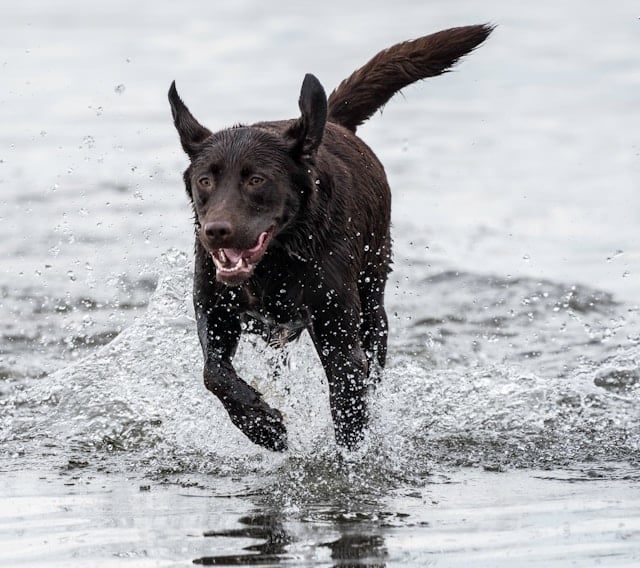What’s the Best Way to Teach a German Shepherd to Swim Safely?

Navigating the waters of dog ownership can be difficult. Teaching a German Shepherd to swim safely takes patience, understanding, and a careful approach. This article aims to guide you through the journey of teaching your pet to swim. By understanding your dog’s instincts and abilities, and providing safety measures, you will be able to help your dog love the water and have a great time. Follow these steps to ensure your German Shepherd gets the best possible swimming experience.
Understanding Your Dog’s Interaction With Water
Before you introduce your dog to water, it is important to have an understanding of how dogs interact with water in general, and how German Shepherds specifically interact with it.
A voir aussi : How to Create a Nutrient-Rich Diet for a Bearded Dragon with Metabolic Bone Disease?
Dogs, like humans, have unique relationships with water. Some breeds are natural swimmers, while others are not. German Shepherds, for instance, are not typically water dogs. Their heavy coats and physical structure make swimming more challenging. However, with proper training, your German Shepherd can learn to swim safely and may even come to enjoy it.
Understanding your dog’s potential fears and hesitations will help guide your training process. Take the time to observe your German Shepherd’s behavior around water. Notice their reactions to different bodies of water, such as a lake, a river, or a pool. This will give you a sense of their comfort level and potential areas of concern.
Sujet a lire : How to Safely Introduce a Newborn Kitten to a Household with a Senior Cat?
Step by Step: Introducing Your Dog to Water
The initial introduction of your German Shepherd to water is a critical step in their swimming journey. This process should be undertaken with caution, patience, and care. Remember, a positive first experience can make a world of difference in your dog’s future relationship with water.
Start with shallow, calm water and let your dog explore at its leisure. This could be a kiddie pool or the shallow end of your pool. Always supervise your pet during this time, but refrain from forcing them into the water. The goal is to let your dog discover water on its own terms.
Using toys or treats can be a useful way to encourage your dog to enter the water. Throw a toy or treat into the shallow water and praise your dog when it goes after it. Repeat this step until your dog seems comfortable in shallow water.
Teaching Your Dog to Swim
Once your German Shepherd is comfortable in shallow water, it’s time to introduce swimming. This step is particularly important, as it will equip your dog with the necessary skills to keep afloat and navigate in deeper water.
Before you start, ensure you have a dog life jacket for safety. This will provide buoyancy and help your dog stay afloat during their initial attempts at swimming. Make sure the life jacket fits well and is comfortable for your dog.
Next, lead your dog into deeper water. This should be done gently, with you remaining by their side at all times. You can walk your dog out to deeper water or use a toy to encourage them to follow you. Be sure to keep the experience positive and provide lots of praise and rewards.
Pool Safety for Dogs
Pool safety is paramount when teaching your German Shepherd to swim. Remember that while swimming is great exercise and can be a lot of fun for dogs, pools can also present dangers. Therefore, you need to implement certain safety measures.
Teach your dog where the stairs or ramps are in the pool. This will help them find their way out of the water when they want to or need to. This can be done by guiding your dog in and out of the pool using the stairs or ramp multiple times until they remember it.
Another important safety measure is to ensure your pool is fenced, to prevent your dog from accidentally falling in when you’re not around. A pool cover is also a good idea, but remember that not all covers are dog-safe or sturdy enough to hold a dog’s weight.
Reinforcing Good Behavior
As you continue your German Shepherd’s swimming training, remember to reinforce their good behavior. Positive reinforcement plays a pivotal role in dog training. It not only encourages your dog to repeat the behavior, but it also helps to build a stronger bond between you and your pet.
Use treats, toys, and plenty of verbal praise to reward your dog for successfully following instructions or overcoming a fear. This will motivate them to continue learning and progressing in their swimming journey.
Over time, with consistent practice and positive reinforcement, your German Shepherd will be able to swim confidently and safely. It may take time and patience, but the reward of seeing your pet enjoy the water will certainly be worth the effort.
Building Confidence and Overcoming Fears
Gaining confidence in the water can be a daunting task for your German Shepherd. Given their heavy coats and physical structure, swimming doesn’t come naturally to these dogs. However, by patiently building up their confidence, you can ensure that your dog learns to swim safely and even enjoy the experience.
The key to confidence building is gradual progression. Don’t rush your dog or force them into situations they’re uncomfortable with. Start with shallow water and gradually introduce them to deeper areas.
A life vest can be an excellent tool in this stage of training. The life vest provides added buoyancy, making it easier for your dog to float and stay above the water. Ensure the life vest fits your dog correctly and is comfortable for them to wear.
To help your German Shepherd overcome fear, make the experience as fun and positive as possible. Use their favorite toys or treats to make the water an exciting place. For instance, playing fetch in the water can help your dog associate swimming with fun.
Consistent practice is crucial in this stage. The more your dog practices swimming, the more comfortable they will become. However, always remember to supervise your dog during their swimming sessions to ensure their safety.
Final Thoughts and Conclusion
Teaching your German Shepherd to swim safely is a journey that requires patience, understanding, and care. While German Shepherds are not natural swimmers, they can learn to navigate the water confidently with the right training.
Understand your dog’s interaction with water, and use this knowledge to guide your training process. Introduce your dog to water carefully and gradually, allowing them to discover it at their own pace. The use of a life jacket can provide vital support as your dog learns to swim.
Remember to reinforce good behavior using treats, toys, and plenty of praise. A positive reinforcement approach will not only motivate your dog to continue learning but also strengthen your bond with them.
Safety should be a priority at all times. Teach your dog to locate the pool stairs or ramp and ensure your pool is fenced to prevent accidents.
Above all, make the process fun for your dog. If your German Shepherd enjoys their swimming sessions, they are more likely to become confident swimmers.
In conclusion, teaching your German Shepherd to swim safely is an achievable goal. It may take time, but the reward of seeing your dog enjoy the water is truly worth it. Remember that every dog is unique, so what works for one may not work for another. Adapt your training process to suit your dog’s needs and personality. And most importantly, enjoy the journey.
